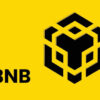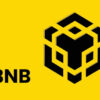
Binance Coin (BNB) has established itself as a major player in the cryptocurrency world, primarily due to its integral role in the Binance ecosystem. With the rise of Decentralized Finance (DeFi), BNB has found a significant place in this rapidly growing sector. In this article, we will explore how Binance Coin integrates with decentralized finance, its impact on the DeFi ecosystem, and what the future holds for this dynamic interaction.
Understanding Binance Coin (BNB)
Binance Coin (BNB) is the native cryptocurrency of the Binance Exchange and the Binance Smart Chain (BSC). Initially launched as an ERC-20 token on the Ethereum network, BNB was later migrated to Binance Chain and subsequently to Binance Smart Chain. It serves multiple purposes, including paying for transaction fees on Binance Exchange, participating in token sales, and supporting various applications within the Binance ecosystem.
What is Decentralized Finance (DeFi)?
Decentralized Finance, or DeFi, refers to a broad category of financial applications and services built on blockchain technology. Unlike traditional finance, which relies on centralized institutions like banks, DeFi operates on decentralized networks, offering financial services such as lending, borrowing, trading, and yield farming through smart contracts. The DeFi ecosystem aims to make financial services more accessible, transparent, and efficient.
How Binance Coin Integrates with DeFi
- Transaction Fees and Gas Costs:
One of the primary uses of BNB in the DeFi space is to cover transaction fees and gas costs on Binance Smart Chain (BSC). BNB is used to pay for transaction fees when users interact with decentralized applications (dApps), execute smart contracts, or perform token swaps. This integration makes BNB an essential component for those participating in DeFi activities on BSC.
- Staking and Yield Farming:
BNB plays a crucial role in staking and yield farming within the DeFi ecosystem. Users can stake BNB to earn rewards or participate in yield farming protocols that offer incentives in the form of additional BNB or other tokens. This functionality not only benefits individual users but also enhances liquidity and participation in the DeFi ecosystem.
- DeFi Platforms and dApps:
Binance Smart Chain hosts numerous DeFi platforms and decentralized applications that leverage BNB. These include decentralized exchanges (DEXs), lending platforms, and automated market makers (AMMs). Platforms such as PancakeSwap and Venus, which are built on BSC, use BNB as a primary asset for trading, liquidity provision, and governance.
- Liquidity Pools:
BNB is often used in liquidity pools on decentralized exchanges and other DeFi platforms. By providing liquidity to these pools, users can earn rewards in the form of trading fees and additional BNB. This integration supports the functioning of DeFi platforms and contributes to the overall liquidity and efficiency of the decentralized financial ecosystem.
- Governance and Voting:
In the DeFi space, governance and voting are key components that allow participants to influence the direction and development of platforms. BNB holders can participate in governance processes on Binance Smart Chain, helping to decide on proposals, upgrades, and changes to DeFi protocols. This integration ensures that BNB holders have a voice in the evolution of the DeFi ecosystem.
Benefits of BNB Integration with DeFi
- Lower Transaction Costs: Using BNB to cover transaction fees on Binance Smart Chain significantly reduces the cost of interacting with DeFi applications compared to higher fees on other blockchains. This cost-efficiency attracts more users to the BSC ecosystem.
- Enhanced Liquidity and Participation: BNB’s role in liquidity pools and staking enhances the liquidity and overall functionality of DeFi platforms. Increased liquidity leads to more efficient trading and better user experiences on decentralized exchanges and lending platforms.
- Incentives and Rewards: DeFi platforms that utilize BNB often offer incentives and rewards in the form of additional BNB or other tokens. These rewards encourage participation and investment in the DeFi ecosystem, benefiting both users and platform developers.
Future Prospects for Binance Coin and DeFi
The integration of Binance Coin with DeFi is expected to continue evolving as the DeFi space grows and matures. Future developments may include:
- Expansion of DeFi Services: As new DeFi services and platforms emerge, BNB’s role and utility are likely to expand, offering more opportunities for integration and participation.
- Enhanced Interoperability: Efforts to improve interoperability between different blockchain networks could increase BNB’s use in cross-chain DeFi applications, broadening its reach and influence.
- Innovations and Upgrades: Ongoing innovations and upgrades to Binance Smart Chain will likely enhance BNB’s functionality and performance within the DeFi ecosystem, leading to new use cases and applications.
Conclusion
Binance Coin (BNB) has become a vital component of the DeFi ecosystem, playing essential roles in transaction fees, staking, liquidity provision, and governance on Binance Smart Chain. Its integration with DeFi enhances the efficiency and accessibility of decentralized financial services, making BNB a key player in the evolving world of decentralized finance. As DeFi continues to grow, BNB’s role and impact are set to expand, offering new opportunities for users and investors alike.











